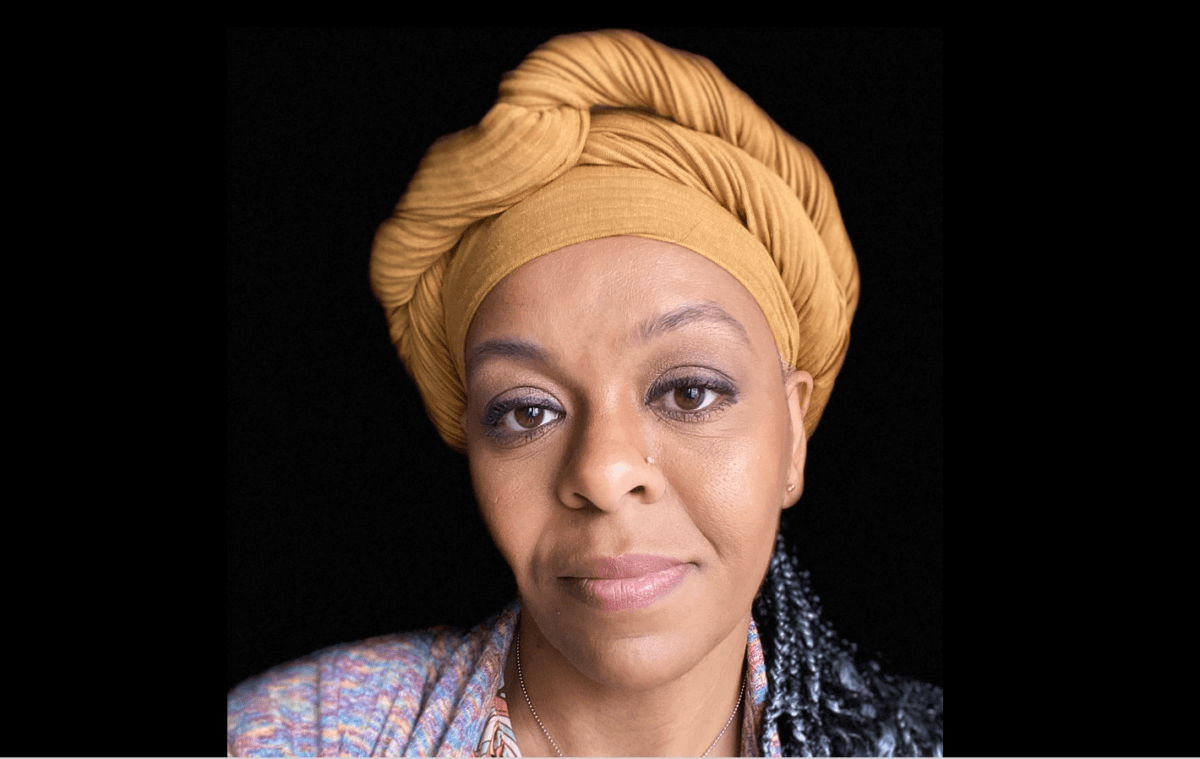What Tracy McCarter’s Case Reveals About the Fight to Decriminalize Survival
Prosecutors recently dropped murder charges against McCarter, a domestic violence survivor who killed her estranged husband in an act of self-defense. Her legal ordeal shows how much more we must do to show up for women.

This piece is a commentary, part of The Appeal’s collection of opinion and analysis.
On March 2, 2020, Tracy McCarter was arrested and charged with the murder of her estranged husband, even as she maintained she had acted in self-defense against his repeated abuse, both that night and many instances prior. For the next six months, McCarter was held on Rikers Island in New York City, separated from her family and community and forced to live through a global pandemic behind bars as she faced the possibility of 25 years in prison. She was eventually released on home detention, but for the two years that followed, McCarter and her family lived in fear that she could be taken away again.
Finally, this November, Manhattan District Attorney Alvin Bragg announced that he was declining to move forward with McCarter’s prosecution. On December 2, New York Supreme Court Justice Diane Kiesel affirmed Bragg’s decision by dismissing the case, albeit begrudgingly. Although Bragg still has the option to file lesser charges against McCarter, he has suggested he won’t. After more than two and a half years, McCarter’s legal ordeal appears to be over. But her advocacy for other survivors caught in the crossfire of an overzealous punishment system may only just be beginning.
“They thought they were building me a cage. Instead they were building me a pulpit,” McCarter tweeted in November, following Bragg’s initial announcement.
The reality, as McCarter now knows firsthand, is that there are too many women sitting behind bars simply because they were trying to survive. Advocates estimate that 90 percent of women incarcerated in New York have been subjected to domestic violence. And nationally, more than 80 percent of women detained in jails are survivors of abuse, per the Vera Institute of Justice.
Imprisonment is costly and ineffective. New York City alone spends over half a million dollars annually to incarcerate one woman. With about 320 women in DOC custody, this amounts to approximately $178 million each year. No one is safer because of our choice to rely on caging and punishment. In fact, we jeopardize public safety by incarcerating women and mothers and disrupting families and entire communities.
At the Women’s Prison Association (WPA), the nation’s first organization dedicated to women impacted by criminalization and incarceration, we work at the intersection of structural failures that force many women into criminalized behavior for survival, and then deny them access to resources and support that could keep them home with their children, instead of behind bars.
We regularly challenge law enforcement officials, judges, and policymakers to consider an alternative approach that invests in people, not prisons and jails. We frequently ask: What if we spent that $178 million on housing, job training and opportunities, and child care support? What if we ensured that women and mothers like McCarter had what they needed to be free, safe, and independent so that their survival never reached the point of criminalization?
Every day, our team of case managers, clinicians, and directors meets with women who have been punished for survival. We see how a woman’s history of trauma informs her current involvement in the system, and how the self-defeating response of criminalization only heaps additional emotional and financial costs on already vulnerable people. This is why WPA’s Alternatives to Incarceration programming revolves around working with prosecutors and judges to redirect women’s sentences so that they can remain in their communities to receive support and care.
Each survivor has a different set of circumstances, as well as different needs and goals. The one-size-fits-all nature of most punitive responses often ignores this fact, but so too do some alternatives.
At WPA, we’ve learned that the best way to serve our clients is to give them the power to shape their own individualized support plan. We do not prescribe success, but instead partner with women to think about what success looks like for them—academically, professionally, socially, and otherwise. We work with women to help them obtain their GEDs or other degrees, which can lead to higher wages. We assist them in the process of securing supportive services and other resources, including housing and employment, which can set them on a track to independent living.
We believe WPA’s approach shows where we can go as a society. Although McCarter’s case struck many Americans as a clear and obvious injustice, the truth is that the vast majority of people who face prosecution in our legal system have themselves been victimized. Cycles of violence and trauma are vast and deeply rooted—certainly far too complex to be broken by an instrument as crude as a prison sentence. That’s why our work is driven and informed by the women we work with, validating their agency and creating opportunities for them to lead the difficult process of redirecting their lives.
More than 176 years after WPA’s founding, our hope is that our work won’t be necessary in another 176 years, as we reimagine society’s approach to incarceration. But to achieve that future, we must build up a robust infrastructure that can replace punishment with community support, mental health resources, and gainful employment—all of which can help alleviate trauma and prevent it from boiling over into further tragedy.
McCarter’s story demonstrates how much more we must do as a society to show up for our women. Too often, we dismiss women as “criminals” without even asking why they’re in these positions. The time McCarter lost being unnecessarily dragged through a dehumanizing system reminds us why the work of organizations like WPA is so critical. Instead of giving sentences, we’re giving alternatives. Instead of imposing criminal records, we’re creating freedom, safety, and independence.
